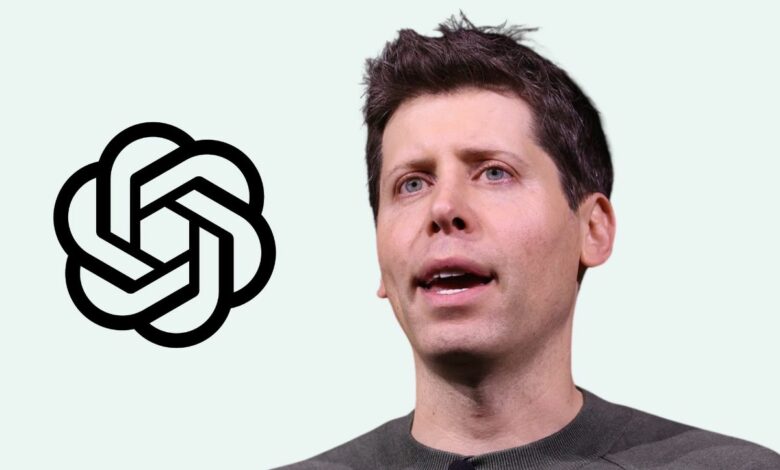Table Of Contents
In a rare and insightful blog post, Sam Altman, the current CEO of OpenAI, shared his optimistic vision for the future of artificial intelligence (AI). As one of the most influential figures in AI today, Altman’s perspective offers a unique look into the rapidly evolving world of technology. With OpenAI at the forefront of AI research and development, his words carry significant weight within both the tech industry and global discussions on AI ethics, innovation, and its societal impact.
Altman’s post highlights several key predictions, including the rise of “superintelligent” AI, which he believes could surpass human intelligence within “a few thousand days.” His bold statements align with the rapid pace of advancements in AI, echoing sentiments shared by other industry leaders, such as Nvidia’s CEO Jensen Huang, who noted that AI’s growth is now outpacing Moore’s Law. This shift positions the world on the cusp of unprecedented technological breakthroughs, but also brings about challenges that must be addressed to ensure a sustainable and equitable future.
Superintelligent AI: A Game-Changer on the Horizon
Altman’s post delves deep into the concept of superintelligent AI, a level of artificial intelligence that would exceed human cognitive abilities. He predicts this technological leap could happen sooner than many anticipate, potentially within the next few decades. This development could revolutionize industries, scientific research, and even the way we live our daily lives.
According to Sam Altman, advanced AI systems could perform complex tasks independently, such as coordinating medical care and offering personalized assistance across various fields. This type of AI would be capable of handling intricate decision-making processes, freeing up human resources for more creative and strategic endeavors. As exciting as this prospect is, it also raises concerns about the ethical implications and the potential for misuse.
However, Sam Altman remains optimistic, suggesting that the rise of AI will lead to “unimaginable shared prosperity.” He envisions a future where AI accelerates scientific discovery and helps solve some of the world’s most pressing problems. Yet, he also acknowledges the need for responsible development and governance to ensure these technologies benefit humanity as a whole.
The Challenges Ahead: Infrastructure, Energy, and Ethics
While Sam Altman expresses confidence in the potential of AI, he also stresses the importance of addressing several pressing challenges before this vision can be fully realized. One of the key issues he highlights is the significant demand for energy and advanced hardware necessary to operate these AI systems. Without the right infrastructure, the development of superintelligent AI could be hindered, and in the worst-case scenario, competition for limited resources could even lead to conflicts.
Altman’s concerns echo the broader conversation within the tech industry about the environmental impact of AI. The energy required for large-scale AI systems, especially those involving neural networks and machine learning, is immense. As AI technology continues to advance, finding sustainable ways to power these systems will become increasingly crucial.
Ethics also plays a central role in Altman’s vision. He emphasizes the importance of creating policies and frameworks that ensure AI is developed responsibly. Without proper oversight, there is a risk that powerful AI technologies could be used for malicious purposes or exacerbate inequality. Altman’s call for proactive governance reflects the growing awareness that AI, while full of potential, needs to be carefully managed to avoid unintended consequences.
The Impact on Jobs and the Workforce
One of the most contentious issues surrounding AI is its potential to disrupt the job market. Altman addresses these concerns, predicting that while AI will bring about significant changes in the workforce, it will also create new opportunities. He argues that rather than eliminating jobs, AI will shift the focus of human labor toward more creative and high-level tasks, while automating repetitive and mundane processes.
This perspective is shared by many in the AI community, who believe that automation will lead to a redefinition of work, rather than mass unemployment. However, this transition will require careful planning, including reskilling programs and education initiatives to prepare workers for the jobs of the future.
Altman’s vision aligns with broader trends in AI research, which suggest that while there will be disruptions, the net effect of AI on employment could be positive. However, much will depend on how governments and businesses handle the transition. Proactive measures, such as investing in education and fostering innovation, will be critical to ensuring that the benefits of AI are widely shared.
Conclusion: A Future Shaped by AI
Sam Altman’s recent blog post offers a compelling glimpse into the future of artificial intelligence. His optimistic yet realistic outlook highlights both the immense potential and the challenges that lie ahead. From the rise of superintelligent AI to the ethical and infrastructural hurdles that must be overcome, Altman paints a picture of a world that is on the brink of transformative change.
As AI continues to evolve at a breakneck pace, it’s clear that the technology will play a central role in shaping the future of humanity. The key, as Altman emphasizes, will be to ensure that this future is built on a foundation of responsible innovation, equitable access, and careful governance. With the right approach, AI has the potential to unlock unimaginable prosperity and drive progress in ways that were once thought impossible.
In the coming years, the world will watch closely as OpenAI and other leading organizations push the boundaries of what’s possible with artificial intelligence. As Altman’s post makes clear, the future is bright, but it will require careful stewardship to ensure that AI becomes a force for good in the world.
By focusing on Sam Altman’s vision and recent developments in AI, this article provides a comprehensive overview of the future of artificial intelligence. It highlights the need for careful consideration of ethical, infrastructural, and societal impacts, while also presenting AI as a tool for unprecedented progress. As the world continues to grapple with the implications of AI, Altman’s insights offer a valuable perspective on how to navigate this rapidly changing landscape.


